'Free entry for the Flat in Ireland. Ridiculous, right? Wrong'
Ten Racing Post writers with suggestions on how to increase the sport's appeal
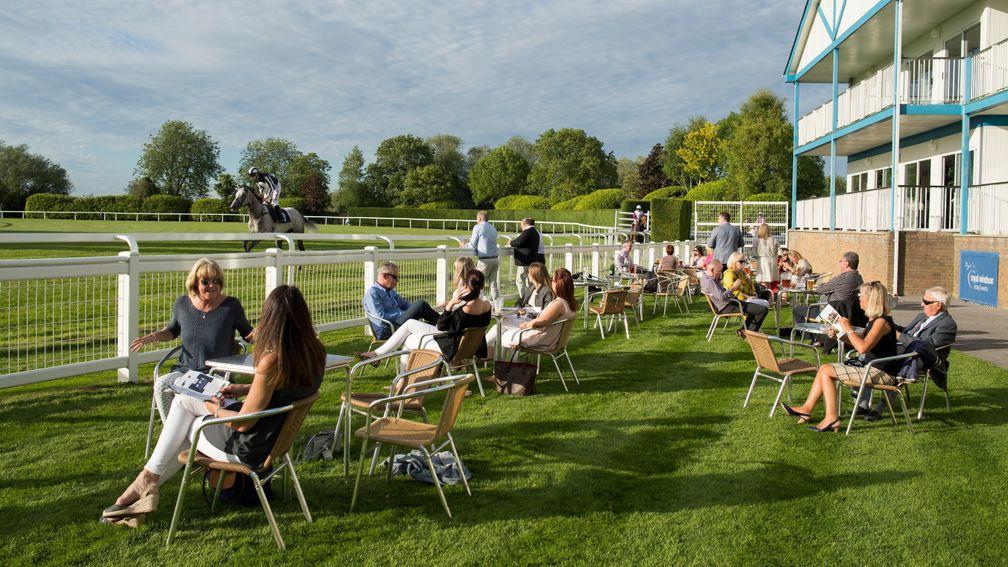
Racing needs to maximise Sunday opportunities
It’s July, it’s sunny, you live in the south of England and you want to go racing on a Sunday. You might want to take the family. Forget it.
After Windsor on July 2 there is not another meeting south of Stratford or east of Newton Abbot until Windsor again on August 13. Six weeks.
On Sundays most people are off work and looking for things to do. But unlike in Ireland, British racing misses the opportunity. There are 1,496 meetings in Britain this year, roughly four a day. But just 118 are on Sundays, little more than two a day.
It’s not just the south. In August and September there is no Sunday meeting north of York.
The sport added 77 extra evening meetings in 2017 to boost betting income – particularly online – and so the levy. But it also has to remember that tomorrow’s punter is today’s youngster eating an ice-cream at the racing.
Sunday may not be the most popular day of the week to work if you are employed in a yard. But racing is a spectator sport.
And evening meetings are probably more loathed. Trainer Richard Hughes even advises owners not to run on Friday nights because of the hassle getting to meetings in the traffic.
The main fixture every Sunday now includes a race worth at least £20,000, which is a start down a road that needs to lead to more top-class Sunday meetings like Cheltenham’s in November.
That and the introduction of three meetings every Sunday spread around Britain at the expense of 40-odd fixtures a year from the glut of evening and all-weather action is what is needed.
Mark Storey
Do everything to ensure the punter is catered for
My father's generation grew up with horses on the street, delivering coal, milk and the rest, so they felt an affinity with the animal and racing was an obvious sport to follow.
My generation grew up knowing that, if they wanted a bet, racing was pretty much the only game in town – you needed to learn how to follow form if you wanted to gamble.
But my son's generation get their deliveries from Ocado and they have countless betting opportunities available to them wherever and whenever they want.
Not even the BHA or Great British Racing are going to bring back the horse and cart so it is the second area they should aim their fire at.
If you want to grow interest in racing, you need to show those who use gaming machines or play the lottery or online casino games that our sport offers the best interactive betting experience.
That means running racing as they do in Hong Kong or Australia, where the customer is king and everything is done to ensure the punter is catered for.
It starts with the basics, providing a competitive racing programme on accurately measured courses with a no-nonsense approach to integrity issues – few people will be tempted to bet on a sport they feel they can't trust.
But it also means catering to the demand for data from the punting population. Sectional timing ought to be a matter of course at the lowliest venue. Official electronic times should be introduced for all jump races, along with a system of weighing horses – and why not tell the public about wind operations and any other relevant information?
It may be expensive – but the long-term cost of not doing it could be a lot more.
David Carr
We need to boost shared ownership of racehorses
Owning a racehorse outright requires money, far more money than anyone on an average income could possibly countenance being able to afford.
It is indeed a barometer of how much the sport is dominated by the mega-rich that when someone like multi-millionaire Anthony Oppenheimer wins the Derby we almost perceive it as a victory for the little man.
For racing to further flourish it needs to embrace more little men who are actually little, or certainly closer to being representative of those who watch the sport and punt on it.
To that end, key to driving racing's popularity is boosting shared and syndicate ownership.
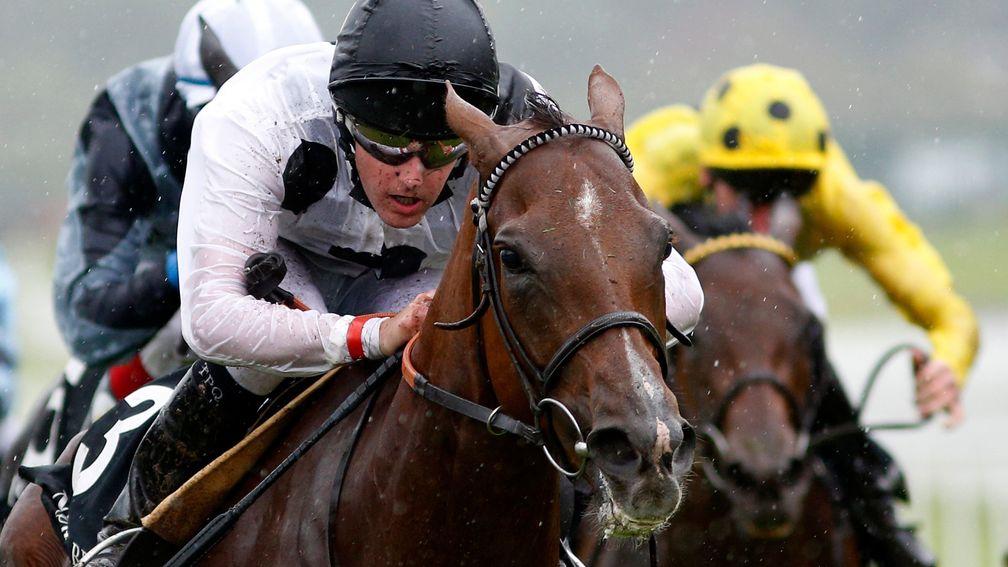
One of the joys of racing in Australia is the extent to which so many equine superstars, including Black Caviar and Winx, have groups of owners who go wild with delight when they win. Britain needs to go the same way, so it is good to see Great British Racing pushing this hard.
There are few greater thrills than seeing a horse run in your colours. We need more people to experience that thrill. For this to happen racecourses must be better equipped to handle syndicate owners and to ensure all those involved in syndicate-owned horses are made to feel special.
It is not always entirely helpful that racing is known as the sport of kings. It needs to be the sport of normal people, not just in terms of racecourse attendance or betting shop clientele but in terms of ownership as well.
If the sport could embrace more of those normal people, and be a little less dominated by those for whom money is no object, it would become inordinately richer.
Lee Mottershead
Mandatory media training for trainers and jockeys
Football is the nation-defining sport with sky high popularity, so perhaps racing should take some tips from the beautiful game. Do the police kettle racegoers enough, for example, and where are all the songs questioning jockeys' parentage?
Seriously though, racing could benefit by understanding that it is not football and therefore has no automatic right to public attention. Racing, like all sports that aren't footie, must fight to secure its place in an entertainment marketplace more crowded than Henman Hill. That fight shouldn't be conducted just by marketing folks – you wouldn't want to leave it to them, would you? – but by everyone in the sport.
Plenty of trainers, jockeys and owners are engaging and fun to start with, but others are not. Ryan Moore, a genius in the saddle, is entirely entitled to look like he's chewing on barbed wire whenever a camera is put in his face, but it would help the sport no end if he didn't.
John Gosden referred to this obligation in a recent interview with the Times, saying: "It is incumbent upon us to make [racing] as interesting and at times as amusing as you can be." Gosden is one of the sport's most enlightened trainers and this was a typically far-sighted observation.
Sometimes reticence with the media stems from shyness, other times because the importance of selling the sport hasn't been properly explained. Both these factors could be addressed by mandatory media training for all trainers and jockeys (it has already been introduced for new trainers and prospective apprentices and conditionals).
Far from being an imposition on professionals, this would make them better equipped to flourish on the public stage, to the ultimate benefit of themselves and the sport.
Tom Kerr
Increase competition at the upper echelons
We have seen how sports with mass appeal such as the GAA, football and rugby have been revolutionised from the top down.
Extra emphasis has been placed on making the elite championships uber competitive, with the likes of the Premier League, the inter-county structures and the Champions Cup all serving to broaden the appeal of those respective disciplines.
To an extent, racing has done something similar, with aggressive promotion of the Cheltenham Festival and other marquee festivals.
However, it is both too much and not enough, for we go too far down that particular road while at the same time allowing other supposedly top-level affairs to be reduced to irrelevancies. It is an especially acute issue in Irish racing.
A propensity for upgrading races to Grade 1 status has left us with 34 Grade 1s, when there are just 30 Grade 2s. With a declining number of horses in training and an increasing concentration of resources in fewer hands, the upshot has been a reduction in levels of competition and variety in the upper echelons.
The most influential owners and trainers can too readily spread their riches, resulting in small-field, one-sided races that are dominated by the same faces. That does little to generate intrigue.
As such, a radical revamp should be considered. The big guns ought to be compelled to run their classiest horses against each other, so the best can be pitted against the best to allow for more meaningful clashes in the top tier.
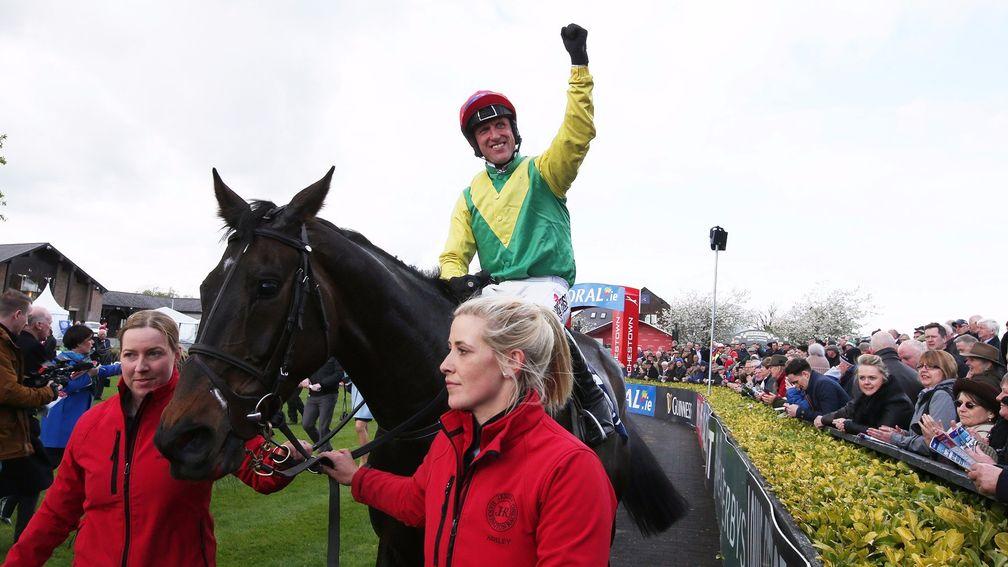
As we saw so memorably in this year's epic Punchestown Gold Cup, that is and will always be what captures the public imagination. In this instance, less will always be more.
Richard Forristal
Create a series of races for women jockeys
More diversity might equal more popularity via a more widespread customer base. Nothwithstanding the exploits of such as Hayley Turner, Josephine Gordon and others, a bit of positive discrimination would not go amiss with regard to assisting the cause of female jockeys. Any suggestion of an allowance, however well intentioned, is a non-starter – not least because the jockeys themselves are wholly against it – so how about a series of decent-grade races confined to women?
Perhaps akin to the old Crown Plus Two Apprentice Handicap series of the 1970s, comprising a number of races for professionals (not amateurs) linked with a high-profile final. Preferably once a week at the better cards – Royal Ascot, the Derby meeting, Glorious Goodwood, the Ebor meeting, televised Saturday meetings – and preferably as a seventh or eighth race added to what already exists so as not to detract from the whole.
Throw in a points-based championship and you've also got the 'narrative thread' so beloved of marketers. Hopefully a sponsor could be found to back the whole series: you can't just wave a magic wand and produce the prize-money. A big double-points final, maybe at the Ascot Champions Day or the final day of the turf season at Doncaster would add a neat climax.
I would also like to see Epsom's spring meeting – now hosting a serious Derby trial – reverting to two days and marketed as a London version of Chester, with the Great Metropolitan going back across the middle of the track to add a bit of colour. The eradication of such quirks has been to the detriment of the sport's appeal.
Nicholas Godfrey
Declare mares in foal
Tegara and Ms Gillard were winners for David Simcock last month but unfortunately for punters a significant piece of information about both mares was revealed by their trainer only after they had passed the post in front.
Tegara was the first to score, landing a Kempton mile handicap on June 7 before Ms Gillard got off the mark at the 15th time of asking on June 13. Both, it would emerge only after the event, were in foal, something that clearly did neither any harm.
Simcock has done nothing wrong but surely it is time to end the secrecy that surrounds so much of the lives of horses in training and give the punters whose money is vital to the sport's existence the opportunity to make better informed decisions before a race. In Australia, for example, it is the duty of a trainer to notify the stewards in writing if a mare in his or her stable is in foal and it is not too much to ask that handlers in Britain could do the same.
While we are at it, how about letting us know if a horse has had a wind operation, or indeed any treatment or procedure that may have an impact on its performance when it appears at the races? Not every mare thrives from being in foal and not every wind operation brings about improvement but that does not mean punters should not be able to decide for themselves how significant such things are.
Mark Scully
We should do more to help newcomers to the sport
Ban tweed at Cheltenham. It ostracises newcomers and promotes the formation of cliques.
I jest of course, but racing has a real 'us and them' problem when it comes to neophytes. It is a complex sport, there's no doubt about that, but we need to do much more to help potential fans understand it – not sneer at them because they don't understand the handicap or can't calculate the odds on a Frankie four-timer in 8.3 seconds. No one was born with such knowledge, and some of us are just rubbish at maths.
For starters, why not offer race distances in furlongs and metric? Kilos alongside stones and pounds? I'm by no means suggesting we do away with the traditions of racing – its many quirks are one of its most attractive qualities. But why not make things simpler for newcomers where we can, rather than using it as a test to see if they are worthy of deciphering the magic within? It's not the Marauders' Map, and the world won't end if we acknowledge modern measurements exist.
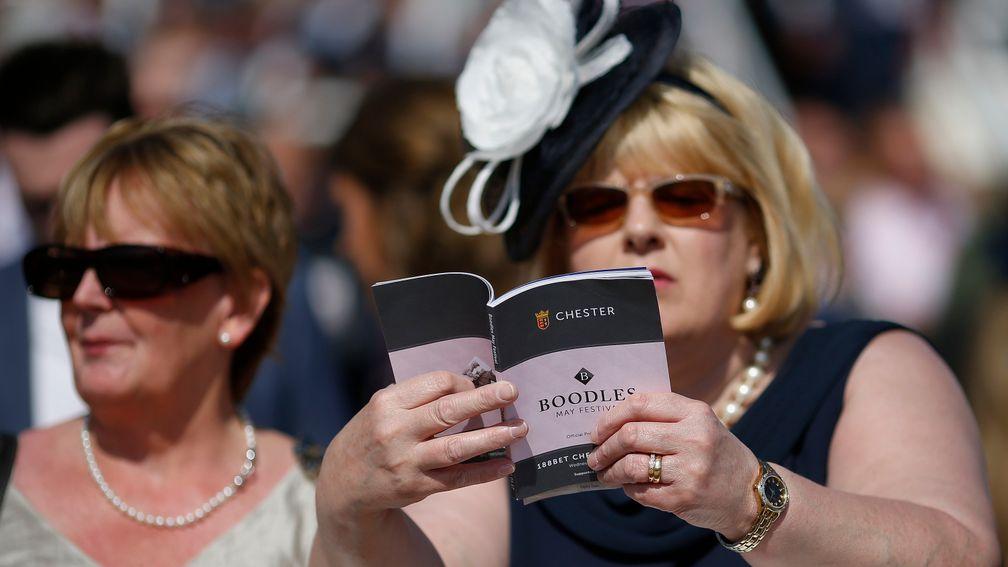
I'm not suggesting such minor tweaks will lead to a deluge of new racegoers. But people try racing for the first time every day – let's not scare them off at the first because they don't feel welcome or valued.
Katherine Fidler
Let everyone in for free at Flat fixtures in Ireland
Free entry for Flat fixtures in Ireland. It sounds ridiculous, right? Wrong. It makes perfect sense.
Usually a ticket to a sporting event is your last expense. In racing it is your first. The admission fee does exactly what it says on the tin, or the ticket in this case. It admits you. You have to get a racecard so that's another €3. You don't have to have a bet but most people who come racing do so that helps vacate the contents of your wallet too. Given that a seven-race card usually takes over three hours, food comes into the equation and maybe a drink as well. It is usually a seriously expensive day out, especially for families, and the cost can turn away newcomers for good. We can cure that, though.
Let's open the gates and let everyone in for free during the summer. The Irish Derby day and Irish Champions Weekend might be all-ticket affairs but every other Flat fixture in Ireland should have free entry.
Jump racing is in our DNA in Ireland and continues to thrive. There is no need to tamper with that but the Flat scene needs support. Gowran Park was thronged for Thyestes day in January but how many of those were at the track on Tuesday night for seven Flat races when the entry fee was €15? Very few.
Lets lure the curious in and then try to keep them. We are experiencing a golden era for Irish racing right now so now is the time to cash in on that. The Flat can be fabulous so it is about time we broadened its appeal.
David Jennings
Reach out via television
Racing is the finest sport and spectacle there is – the task is to spread the message more widely and hope more people listen.
Using the standout success of Big Orange at Royal Ascot as an example, what about this? A five-minute programme on ITV, early weekday evening. Take a thrilling race, introduce the audience to the main protagonists, jockey, trainer, horse. Show the race, and then show the delirious aftermath, all set to some uplifting tune.
So for the Ascot Gold Cup you would show Order Of St George winning the race the previous year, show Big Orange winning at Goodwood, bring in Bell and O'Brien, Doyle and Moore for a few words. Then screen the race in all its raging glory, but intercut with various aspects – Richard Hoiles going mad in the commentary box, Rupert Bell going madder, you beauty, a shot of the groom, the stable staff watching the race, close-up, long shot, whatever tells it best.
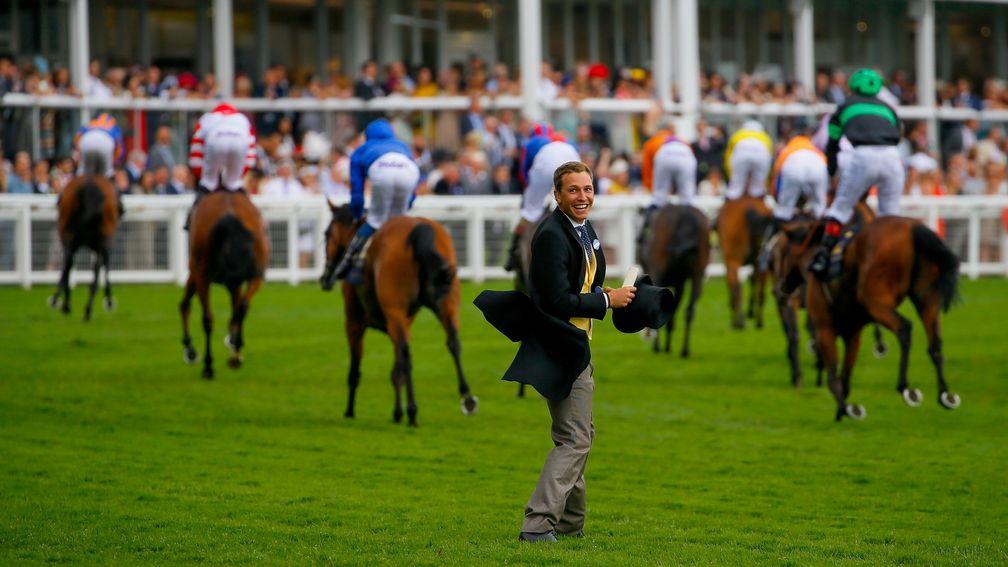
Then the tears, the punching the air, the lip-quivering joy, the great sportsmanship of O'Brien, Big Orange with his noble head in the air as the humans mill around him, a suitably sonorous voiceover explaining the wonder of what we're seeing. Then the screen fades to black, and the words 'This is what racing is like' appear. Do that with a different great race once a day for two weeks. Reach out to people.
Steve Dennis
Published on inNews
Last updated
- Join Racing Post Members' Club for the very best in racing journalism - including Patrick Mullins' unmissable trip to see Gordon Elliott
- Join the same team as Ryan Moore, Harry Cobden and other top jockeys with 50% off Racing Post Members' Club
- Racing Post Members' Club: 50% off your first three months
- 'It’s really exciting we can connect Wentworth's story to Stubbs' - last chance to catch master painter's homecoming
- The jumps season is getting into full swing - and now is the perfect time to join Racing Post Members' Club with 50% off
- Join Racing Post Members' Club for the very best in racing journalism - including Patrick Mullins' unmissable trip to see Gordon Elliott
- Join the same team as Ryan Moore, Harry Cobden and other top jockeys with 50% off Racing Post Members' Club
- Racing Post Members' Club: 50% off your first three months
- 'It’s really exciting we can connect Wentworth's story to Stubbs' - last chance to catch master painter's homecoming
- The jumps season is getting into full swing - and now is the perfect time to join Racing Post Members' Club with 50% off